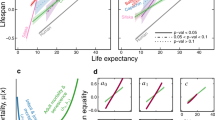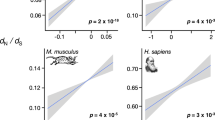Abstract
SEVENTY years ago, the then small educated public read Darwin's “Origin of Species” with such avidity that its first edition of 1250 copies was sold out on the day of publication. For twenty years from that date, biology, because of its obvious and direct bearing on the problem of man's place in Nature, was read and discussed by the general public. That continued interest was in large part due to the controversial vigour and literary ability of Prof. T. H. Huxley? but it was based on that aspect of the human mind which seeks an explanation of the apparent purposelessness of the universe and of human life with its joys and sorrows, distributed so capriciously and unfairly. This interest, long continued, died away, and has never been revived. But in its place has risen an interest far more widely spread and much less easily understood, in those modern developments of physics which depend on the relativity and quantum theories.
The Nature of Living Matter.
Prof. Lancelot Hogben. Pp. ix + 316. (London: Kegan Paul and Co., Ltd., 1930.) 15s. net.
This is a preview of subscription content, access via your institution
Access options
Subscribe to this journal
Receive 51 print issues and online access
$199.00 per year
only $3.90 per issue
Buy this article
- Purchase on Springer Link
- Instant access to full article PDF
Prices may be subject to local taxes which are calculated during checkout
Similar content being viewed by others
Rights and permissions
About this article
Cite this article
W., D. Vitalism and Mechanism. Nature 127, 350–351 (1931). https://doi.org/10.1038/127350a0
Issue Date:
DOI: https://doi.org/10.1038/127350a0
Comments
By submitting a comment you agree to abide by our Terms and Community Guidelines. If you find something abusive or that does not comply with our terms or guidelines please flag it as inappropriate.



